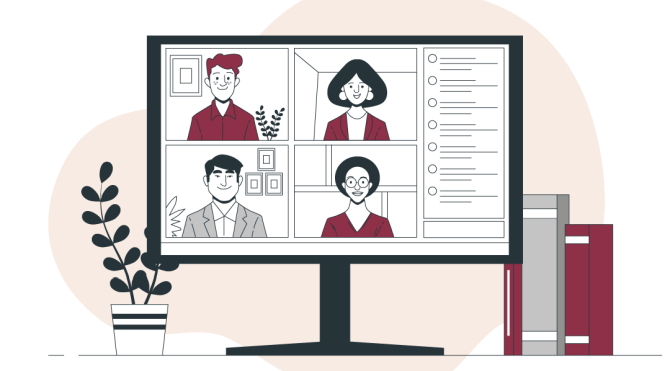Big tech companies such as Microsoft, Twitter or Amazon are increasingly adopting extended remote work or Work-From-Home policies. Their decision is viewed like a smoke signal and it’s being blown by the wind of change, opening up debates and discussions on an old theme.
Why old? Well think about it…remote work is not a novelty. We’ve been hiring people all over our country, accepting that our talent would do remote work, for some time now. And we aren’t the only ones. Far from it. The novelty is the scale at which work-from-home (WFH) was adopted during the pandemic. In Romania, about 18.4% of employees started working from home as a result of the COVID-19 pandemic, according to a report by Eurofound (European Foundation for the Improvement of Working and Living Conditions).
So, right now the question is not if remote work is here to stay because we have already seen more employees demanding the system to become primary. The real question is:
What can we do as companies, to adapt to it on a larger scale? To answer that, let’s see the pros and cons of WFH.
PROs
Economically, WFH makes the most sense: there’s no need to rent big offices if your employees are working from home, there is zero time spent in traffic, thus zero delays in starting on time.
There is also a more relaxed day start: as friction coming from daily interactions in traffic is reduced. So, at least on a theoretical point, we should be more relaxed and more productive in this work system.
These are some of the perks of WFH. But it’s not all rainbows and sunshine though.
Let’s also see some downsides.
CONs
Before the pandemic some companies tried to make their offices very home-like, offering a lot of perks. Letting go of such investment is not easy to accept, as letting go of something that costs us, never is.
To top that, there is no question there are wonderful things that happen when we’re together as humans, as Patty McCord, former chief talent officer, Netflix Inc. has said when asked about WFH. For personal interactions, it’s just better if you can take 5 minute to talk around a cup of coffee.
Not to mention managing a full virtual office with employees that were forced to work from their personal space, just put a lot of pressure on managers.
So it is only natural for questions like the following to appear:
- How do you hire remote employees?
- How do you make sure everyone is still as involved as you would like them to be while passing them the beliefs and values you have as an organization?
- How do you manage boundaries between personal and professional life from miles away?
- How do you manage to keep protocols and safety procedures onboard when people are working from their personal space?
The answer comes from HR specialists who say that remote work has to be thought out and tailored to each organization.
Trying to replicate work in the office is a disaster waiting to happen. Let’s just take meetings, for example. Very soon, during the first weeks of the imposed WFH, people realized that some meetings could have really been just an email.
But let’s go back up to the second question we used to title this article and that made us ponder on this theme.
What can we, at Ropardo, a company not at all stranger to WFH, do to adapt to the new post-pandemic norm?
It is easier for us to describe our experience, and how we managed in our own offices in Sibiu, Romania, hoping you will be able to take as much from it as possible.

The first thing you need to know is the hybrid work systems weren’t something new to us. That helped to have an immediate response and to adapt very early on, managing to become part of the solution, not part of the problem.
One way we did it was using our know-how and talent to create our very own WFH clocking system, making it available for every member of the team. This worked to help us separate work from personal life. In our company narrative, people do come first, so it was important to signal when it was time to log out, in order to prevent burnout.
We also:
- Scheduled regular meetings that were similar to coffee chats with people using a video call. For this, we encouraged no work related topics during these chats
- Organized public speaking courses embracing our value of never stop learning
- Keeping our student programs open, but mixing the online and offline presence for them
- Moved our technical workshops online
Of course there were things that got canceled, just because safety came first. Such were our Bowling Cup, Christmas party or summer team building. We took it to talk more online, keeping an eye for each other, taking into account that the medium may be different, but the connection is the same.
To conclude, the pandemic has indisputably accelerated and amplified the remote-work trend. And as everyone eases the restrictions, “business as usual” will look different.
We may be able to respect the routine, but experiment with change (finding new structure), leading in a remote environment more often, relying on our agile organization to create a foundational strategy and executing a remote transformation, embracing the new trends before we are obliged to do so.
